A pretty exciting week in the world of pop culture as Taylor Swift’s sixth album, reputation, appeared in full (though not in any shops within walking distance from my home and since I’m trying not to give all my money to Apple, I’ve been listening to Radio 1’s selection for free) and we got the December issue of British Vogue, with new editor Edward Enninful’s first time at the helm. I have been listening, reading, consuming and judging all weekend, so here are my verdicts…
reputation
Just to be clear, I am a Taylor Swift fan. ‘Love Story’ has a very special place in my heart since it was sung in hockey changing rooms, maths classrooms and on the street if there were enough of you for most of 2008-9; I got 1989 as a treat for myself at the end of a long day writing essays hungover, fuelled only by Irn Bru, oatcakes, and a love for Taylor; and I lied to my employers about a ‘wedding’ I had to go to so I could see her on tour for that same album with one of my best friends, and we both agree she’s one of the most amazing performers we’ve seen.
But I can’t say I was super looking forward to this album.
There are some sweet, sexy and catchy songs on the album which feel like vintage Taylor (Getaway Car, King of My Heart, and New Year’s Day, which I will happily listen to when it is played over and over again for the holiday season) but many fans are embracing Taylor’s shade, drama and anger – perhaps it feels more comfortable and accessible than the racial politics of Queen Bey’s rage in Lemonade, in which case, maybe think about how we can change that discomfort into something useful – but, ultimately, reputation cements Swift’s status as a problematic fave by focusing that anger on personal feuds from a year ago, which feel petty considering the bigger issues in her orbit.
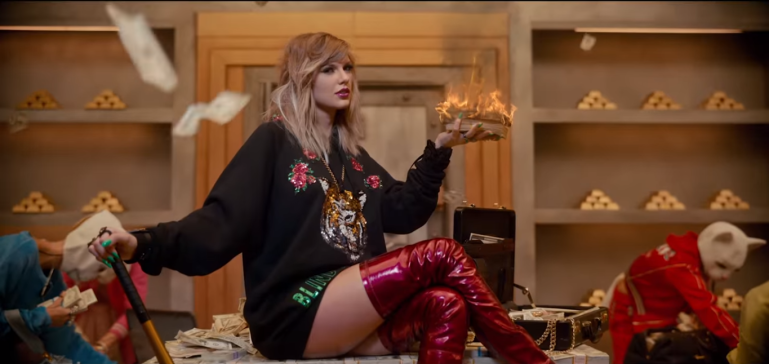
I understand why she was angry at Kanye West’s sexist lyric, and the media frenzy attending her romance with Tom Hiddleston, but what I absolutely cannot and refuse to understand is why Taylor Swift, a powerful woman with a powerful platform, who has built her reputation on being anti-bullying, didn’t say anything about the bully currently in residence in the White House. Even when her own life was touched by sexual harassment – and you saw how bad-ass she was in court, and the money she contributed to victims – since then, there have been no pubic statements condemning 45 and his treatment of women, queers, and people of colour, who, even for shallow PR reasons, must make up part of her fanbase.
Swift has said many times that she doesn’t want to engage with politics for her career, but then she called herself a feminist, which is a political act. I do not need singers to be moral prophets and not every song has to be feminist anthem, but directing some anger at maybe, say, the white supremacists highjacking ‘Look What You Made Me Do’ to support their racist agenda might be a good idea?
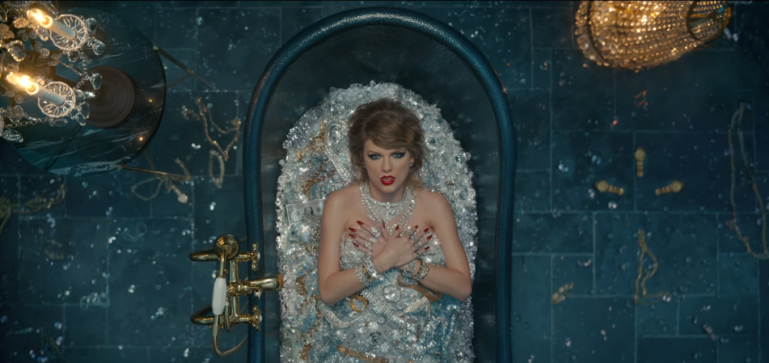
Vogue
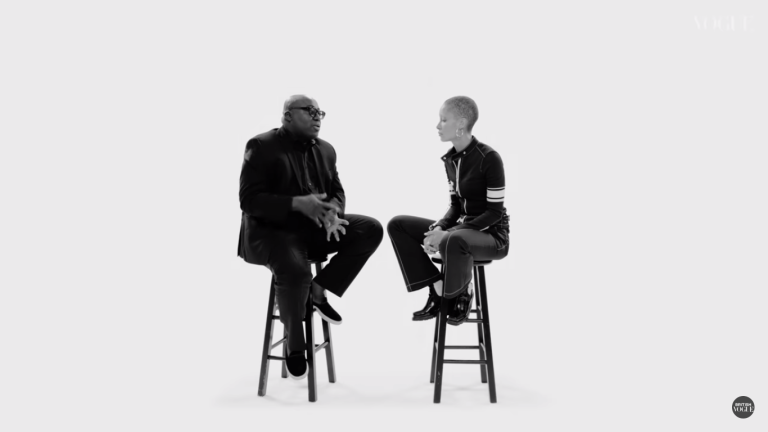
While it would be nice to focus on the many positives of Edward Enniful’s new issue – more models of colour, a cover girl who is mixed race and an activist, some fun features on designers going back to their roots, and Zadie Smith’s piece on the Queen – and address some of the problems – the ‘Best of Britain’ feature written only by English people, the majority of which were Londoners and two of them were Delevingnes; if you want more millennials buying Vogue, try venturing beyond London to Manchester, Glasgow, Edinburgh or Belfast – unfortunately, Alexandra Shulman has made that impossible.
The former British Vogue editor gave an incredibly frustrating and tone-deaf interview in the Guardian this weekend about how claims of her racial insensitivity are totally untrue – but her blind ignorance suggests otherwise; it is an ideal primer on white posh privilege in the arts and why it needs to stop.
She was interviewed by Decca Aitkenhead, a smart, savvy woman who clearly did her research, but unfortunately, Shulman did not – a good editor should be prepared to put in the hours eh… Shulman claimed that it was ungracious of Naomi Campbell to call for more diversity in Vogue given that she had been on the cover 8 times, more than any other model excepting Kate Moss (of course, because it must be in a contract somewhere that she should be on it at least twice a year). But Campbell hasn’t been on the cover 8 times, Aitkenhead said, she’s been on 5 times, in fact, Gisele has been on 11 times, and Natalia Vodianova, ethereally pale, has had 8 covers. Oh. However, apparently it is impossible to claim this as evidence of racism because Shulman son’s grandfather was a civil rights leader, which, I’m afraid, just reminded me of Bring It On 3, when Hayden Panettiere says she can’t be racist because some of her best friends live next door to black people.
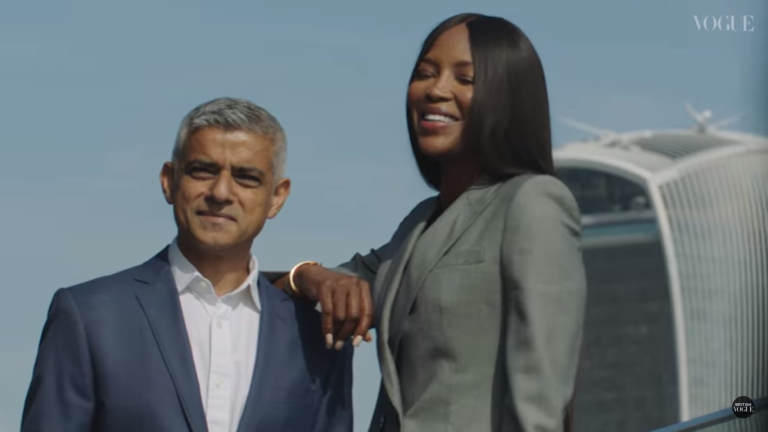
Then there is some discussion of the famous photo of the Vogue team as was when Alexandra Shulman left, a team of 50+ and there isn’t a person of colour among them. It’s a sea of paleness, shelves of milk bottles, an undisturbed snowy lawn, and Shulman’s response was that those were the people who were around that day, and she practically rolled her eyes.
People might have different ideas about employment quotas, you know, for and against; personally, I think they are probably a good idea since it might be the only way in certain companies for people of colour to get in the door, but Alexandra Shulman is not one of those people. That would be fine, if she had a counter-strategy for other ways to diversify her team, but guess what, she doesn’t because she doesn’t recognise that there is a problem in the first place. She claimed she hired totally based on talent – wrong, I’ve been reading Vogue for years and the woman who went to the tanning school is the least necessary article ever written – and that not many people of colour apply, ‘for whatever reason’.
‘For whatever reason.’
Yes, it is a complete mystery as to why women and men of colour might feel indifferent or turned off applying to work at a magazine where the editor in chief, apparently an intelligent and cultured woman, cannot remember how many covers Britain’s most famous black model has had – oh and by the way, that figure is 5 times over a 25 year period, and she didn’t see her position as one for empowering marginalised groups and giving them a voice and a space to express themselves, it was about making already famous names more famous for more money.
This is exactly why I stopped buying Vogue, it’s why I don’t want a woman in charge if she refuses to extend the ladder behind her, and it is why white privilege – because we can’t even call Shulman a feminist at this point – dooms us all. I hope you learn to take a back seat Alexandra, and that you fade into the background, so that Adwoa Aboah, Pat McGrath, Steve McQueen and Edward Enniful can lead us into the fashionable future where colour shines brightly.
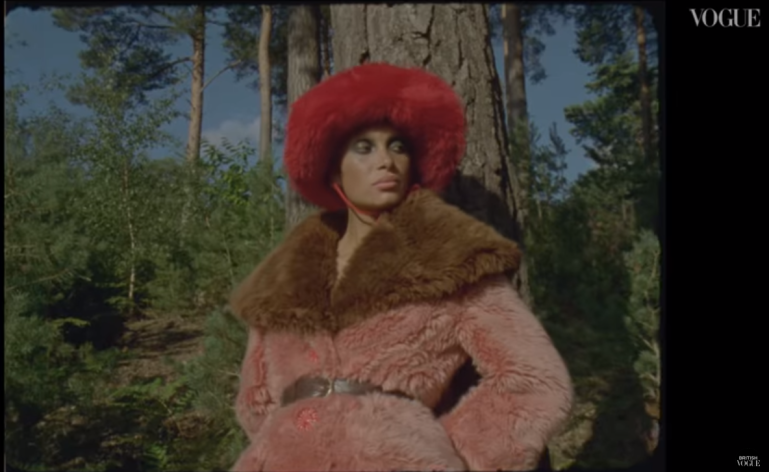
Image credits: TaylorSwiftVEVO and British Vogue via YouTube
